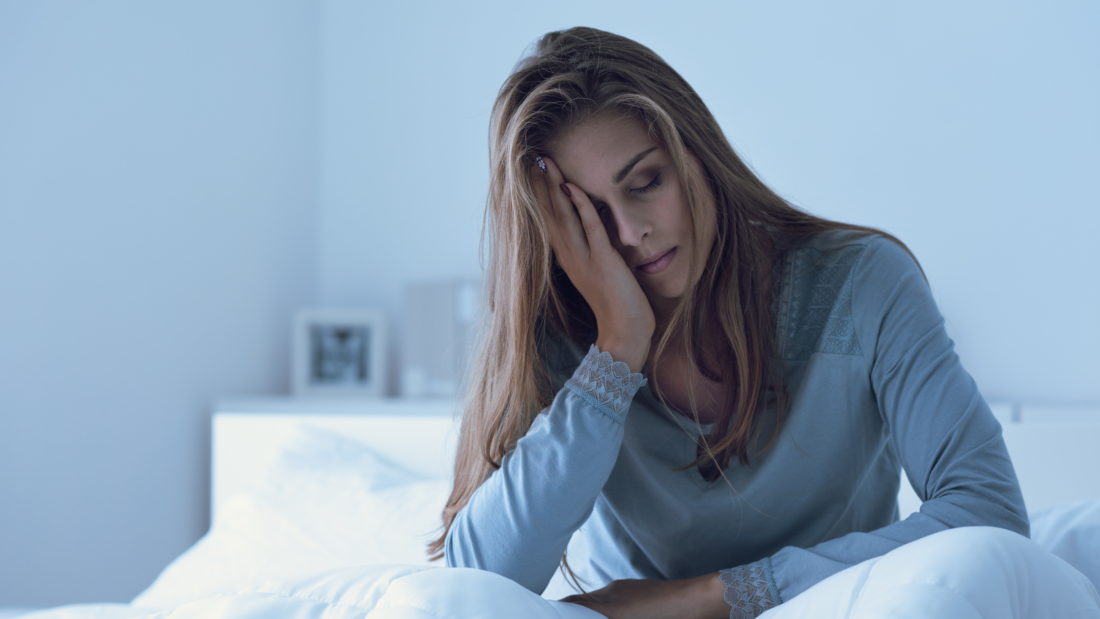
Sleep Apnea: What Is It & How To Get Relief
You may have heard the term “sleep apnea,” but what exactly is it – and how do you know if you have it? Sleep apnea is a condition that impacts an estimated 25% of men and 10% of women. It causes your breathing to become inefficient or causes you to stop for brief periods while you sleep. While we refer to sleep apnea as a single condition, there are actually multiple types of sleep apnea and it’s important to understand what is causing yours in order to receive the right treatment plan for you.
At Lyracore Health Alliance, our focus is always to diagnose the underlying condition that is responsible for your symptoms, creating an optimized treatment plan for your unique case. Here’s what you need to know about sleep apnea and how to determine if you may be experiencing this challenging condition.
There are Three Main Types of Sleep Apnea
The type of sleep apnea you have can vary depending on your underlying cause and medical history. Dr. Alexandre M. Furman, a board-certified pulmonologist in Tampa, Florida, and the founder of Lyracore Health Alliance, performs a comprehensive consultation in order to diagnose three different types of sleep apnea in patients.
Obstructive sleep apnea
Obstructive sleep apnea (OSA) occurs when the soft tissue in the back of your throat periodically collapses during sleep causing brief periods of interruptions of respiration.
Your body (particularly your diaphragm and chest muscles) has to work harder to overcome the closure of the airway and restore breathing. Gasping for air or jerking your limbs and body in your sleep may be described by patients.
Your brain will wake up every time your breathing is either completely stopped or not efficient enough to support optimal body function. Episodes of wakening of the brain are not readily perceivable since your eyes remain closed and your brain perceives that you are still asleep. However, your brain does not get the benefit of continuous, restful sleep. This can cause you to feel tired the next morning.
Central sleep apnea
Central sleep apnea (CSA) is the result of problems with your central nervous system. Instead of an airway blockage, this form of apnea comes from your brain (nervous system) misfiring and not stimulating your respiratory muscles to produce a breath while you are asleep.
As a result, similar issues occur where your brain is not getting the well-deserved restful sleep it craves every night.
This form of sleep apnea is may be present in people with neuromuscular diseases such as amyotrophic lateral sclerosis (ALS), patients who have had a stroke or other forms of brain injury, and those with other conditions such as heart failure, kidney disease, or chronic lung disease as well as many others.
Complex sleep apnea syndrome
Complex sleep apnea is a combination of both central and obstructive apnea. Your central nervous system misfires to stimulate you to breathe efficiently while your airways are periodically blocked by soft tissue in your throat.
It is possible to develop both OSA and CSA because they have two distinct causes.
What are the Signs and Symptoms of Sleep Apnea?
While there are multiple types of sleep apnea, most of the symptoms related to OSA and CSA overlap. There are several things to consider, including types of symptoms, when diagnosing this condition. Doctors will also look into the potential effects of undiagnosed sleep-disordered breathing on some other underlying health conditions such as blood pressure, heart disease, and brain strokes.
You may also notice changes to your sleep patterns and experiences side effects of poor sleep when you wake up.
People who have sleep apnea typically have a poor, disruptive sleep experience. Some symptoms include:
- Disrupted breathing while you sleep. In some cases, you may briefly stop breathing.
- Restlessness while sleeping, including waking up several times throughout the night.
- Snoring
- Gasping, snorting, and choking throughout the night.
- Night sweats.
- Waking up with a dry mouth or sore throat or headache in the morning
Poor sleep throughout the night can lead to exhaustion and irritability in your waking hours. A few symptoms you may experience when you wake up include:
- Fatigue or excessive sleepiness during the day.
- Morning headaches.
- Difficulty thinking clearly during the day.
- Forgetfulness.
- Crankiness.
What are the Causes and Contributing Factors of Sleep Apnea?
There are several causes of sleep apnea. Some people develop this condition because of different lifestyle factors while others are genetically more prone to apnea. A few causes of this condition include:
- Anatomical development. The position and size of your neck, jaw, and tongue can affect your airflow.
- Use of alcohol and other sedatives or pain medications. These can make the tissues in your throat relax, potentially creating a temporary obstruction.
- Nasal congestion and allergies. Chronic inflammation in your nose and throat can potentially lead to sleep apnea.
- Cigarette smoking.
- Obesity.
Additionally, if you have a family history of sleep disorders including sleep apnea, then you may be prone to this condition as well. Ask your close relatives if they have experienced challenges sleeping.
How Can You Diagnose Sleep Apnea?
If you suspect that you have sleep apnea, request a consultation with Dr. Furman. He will review your symptoms and risks for sleep apnea to see if you could potentially have this condition. His goal is to eliminate other potential causes of poor sleep or difficulty breathing.
Dr. Furman will conduct a physical exam to identify potential risk factors that could indicate sleep apnea. He is looking for narrowing in your upper airways, large tonsils, or a large neck circumference. Your jaw size and structure – along with the placement of your tongue – are also factors that could indicate a risk of sleep apnea.
In some cases, Dr. Furman may recommend sleep studies to identify apnea. Some of these can be done at home while others are conducted in special facilities. The goal of these tests is to catch any abnormalities in your sleep patterns (like breathing that stops) and to monitor your heart rate and oxygen levels as well as brain waves and heart/muscle activity.
How Can You Treat Sleep Apnea?
Every patient is unique, which means you will receive different treatment plans depending on your specific type of apnea and its causes. In mild cases, Dr. Furman may encourage you to make basic lifestyle changes to live healthier. By treating nasal allergies or quitting smoking, you can improve some of the symptoms.
In some cases, you may need to start to use a continuous positive airway pressure (CPAP) machine when you sleep. This machine uses air pressure to keep your upper airway open, which reduces snoring and prevents apnea. There are many CPAP models and mask types on the market, which means Dr. Furman can help you find one that is comfortable to use each night.
We’re Here To Help
Living with sleep apnea can leave you feeling exhausted and foggy during the day. Poor sleep can prevent you from functioning at your best in work and life. Your family members may also start to worry about you – both because of your labored breathing at night and your excess tiredness during the day. Your primary health provider may also be worried about the control of some underlying disease processes such as blood pressure control, heart disease, irregular heartbeats, epilepsy, or mood disorder among many others.
By investing in healthy airways and sound sleep, you are caring for yourself and your family and allowing yourself to enjoy life with a clearer head and higher energy levels.
Take the first steps toward healthier sleep. Schedule an appointment with Dr. Furman today at Lyracore Health Alliance.
